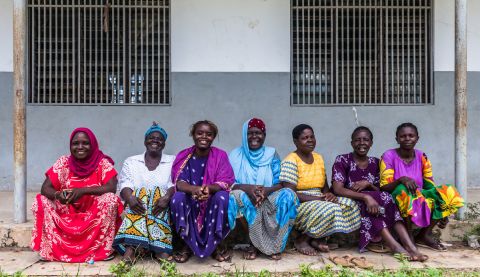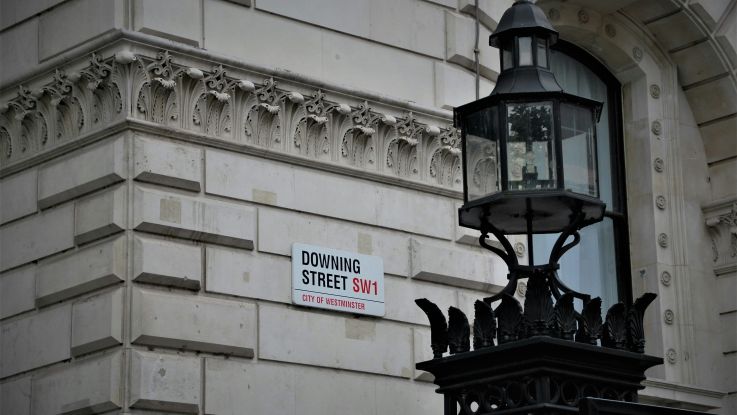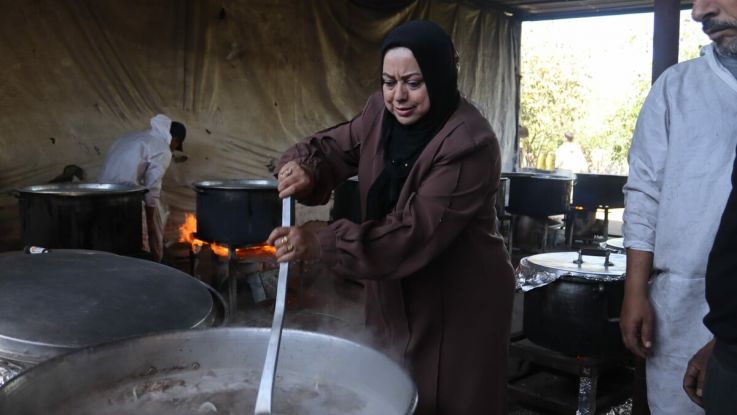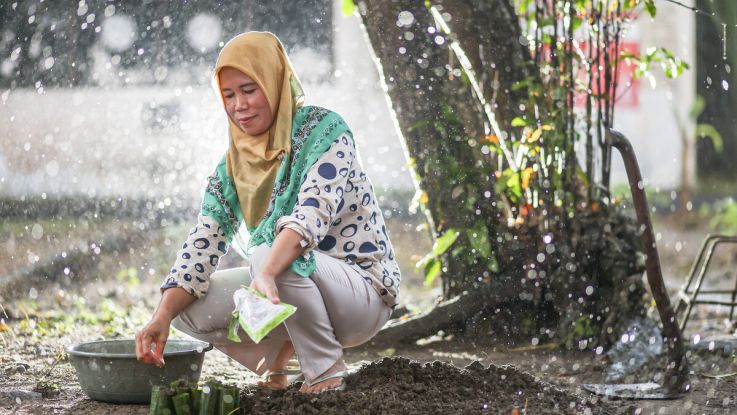Why the G7 must prioritise gender equality
4 May 2021
This year's G7 is an important opportunity for leaders to increase finance for women's rights organisations, and give women and girls a seat at the decision-making table.

Members of the Sauti Ya Wanawake women's network in Kenya, who fight for women's rights in their community. Photo: ActionAid
This summer, the G7 will be hosted here in the UK. It’s an annual meeting of some of the world’s most powerful economies, and this year it meets as the world faces a number of complex crises.
Today and tomorrow, Dominic Raab, the Foreign Secretary, will meet his counterparts from G7 countries. Post-Brexit, hosting the G7 is an important moment internationally for the UK; providing the Government with an opportunity to showcase what ‘Global Britain’ is all about.
Importantly, it’s also a chance for the UK Government to demonstrate just how seriously it takes women’s and girls' rights - by putting them at the forefront of G7 discussions.
Covid-19: the impact on gender equality
While the events of the past 12 months have been unprecedented, the Covid-19 crisis has shone a light on long-standing inequalities.
Even before the pandemic, one in three women globally experienced gender-based violence. Women and girls have long undertaken the vast majority of unpaid care work, and they are more likely to hold precarious jobs or work in the informal economy, with no employment benefits, protection or sick pay.
Covid-19 has compounded every one of these injustices.
In lockdown, women and girls have faced a surge in violence1 and have taken on the lion’s share of care work.
At the same time, women have seen their jobs and livelihoods disappear as Covid devastated the global economy.
Covid-19 and gender equality: women know the solutions
Despite facing these multiple and increasing threats, women have been leading the response to the Covid-19 crisis and challenging gender inequality on the frontline.
At ActionAid, we know from decades of experience that women and girls are powerful agents of change. Women’s rights organisations bring invaluable knowledge of their communities and are crucial to building long-lasting change.
As a result, women have a wealth of expertise to share with governments. G7 leaders must listen.
Why does the G7 matter?
For its part, the UK Government has pledged to include gender equality in all discussions at the G7 and has highlighted a particular desire to support girls’ education.
This is important because G7 governments have the ability to set the international agenda and drive real change. With seats at the world’s most powerful financial institutions, like the International Monetary Fund and the World Bank, their leadership can make a radical difference.
As some of the richest economies in the world, they are also in the best position to fund the policies needed to make gender justice a reality.
The G7: what needs to change?
Last month, at the Women7 summit2 , women’s rights organisations and activists from G7 countries and beyond came together to discuss how the G7 can prioritise gender equality. They’ve made a number of important recommendations3 .
We cannot go back to business as usual."
The UK’s Government’s pledge to include gender equality in the G7 is, of course, welcome. But G7 governments have made many ‘commitments’ to gender justice over the years. Far fewer have been met.
Moving from rhetoric to reality is crucial.
Economic recovery from Covid is rightly at the top of the G7’s agenda. But we cannot go back to ‘business as usual’.
It is vital that the G7 recognises the enormous contribution women make to the economy through the provision of unpaid care and domestic work.
At the same time, significant investment is needed in public services.
This means investing in accessible and affordable healthcare, childcare and education, so the burden on women to provide these services is reduced.
At the same time funding is needed for reliable and affordable vital infrastructure like water and electricity, so women’s domestic work is reduced.
This year’s G7 is an opportunity for transformation."
Violence against women and girls is one of the most pervasive human rights abuses and G7 leaders must prioritise eliminating it.
We know that working with women and girls on programmes to prevent violence have been successful and can create long-lasting change.
But these require adequate funding, robust research and a deep understanding of the unique power dynamics in communities. Women’s rights organisations play a critical role in developing and running such prevention programmes. Yet they remain chronically underfunded.
G7 leaders must, therefore, urgently increase finance to women’s rights organisations.
They must also give women and girls a seat at the decision-making table so that they can meaningfully share their expertise and design the solutions that can bring about gender justice.
This year’s G7 is an opportunity for transformation. We hope G7 leaders have the courage to seize it.
Help us to advocate for change
This summer's G7 summit will be crucial for addressing gender inequality, and G7 leaders have the opportunity to make real change happen as the world moves through and past the Covid-19 pandemic. Please share this blog on social media now to help show leaders that they must take action.



